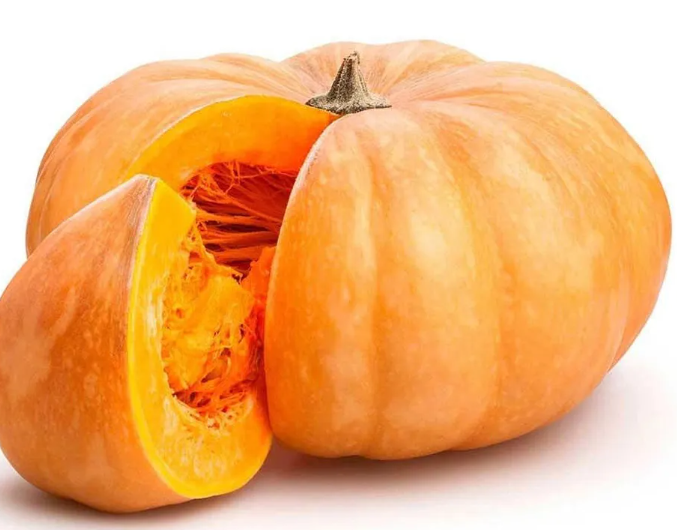Index
Introduction
The Beginning of a Discovery
As a urologist and robotic surgeon, I’m always on the lookout for new advancements and discoveries in the field of urological health that can benefit my patients. During my journey, I found a powerful ally, a gift from nature that is widely available but often overlooked: pumpkin seed oil.
Why Pumpkin Seed Oil?
I’ve always been fascinated by integrative medicine and the idea that food can serve as medicine. It’s a holistic approach that I find greatly beneficial for overall health and well-being. The pumpkin, a humble and common vegetable, is no exception to this idea. From its vibrant pulp to its nutrient-rich seeds, every part of the pumpkin has something to offer. Focusing specifically on pumpkin seed oil, we find a rich source of nutrients that can offer a range of health benefits, especially for urological health. As a doctor, this intrigues me and motivates me to share this information with you.
What We Will Explore
In this article, we will delve into the benefits of pumpkin seed oil for urological health in detail. We’ll discuss everything from the origin of this remarkable oil to how it’s produced, and most importantly, how it can be used to enhance urological health. We’ll also touch on other health areas where pumpkin seed oil can be beneficial, providing you with a comprehensive and insightful view of this natural resource.
Why It Should Matter to You
This isn’t just an interesting topic for those in the medical field but is also highly relevant for anyone interested in maintaining or improving their urological health. Pumpkin seed oil can be particularly useful for men, as studies suggest it may benefit prostate health. So, whether you care about your health, or are just curious to learn more about this amazing oil, this article is for you.
Journey of Discovery
I’m thrilled to take you on this journey of discovery, as we unravel the benefits and applications of pumpkin seed oil. I firmly believe that a better understanding of the tools available for health, whether through conventional medicine or natural solutions, can empower us to make more informed decisions for our health and well-being. Let’s begin our exploration of pumpkin seed oil and its significance for urological health.
Origin and Production Process of Pumpkin Seed Oil
The Roots of the Pumpkin
Pumpkins are native to the Americas, with archaeological evidence dating their cultivation around 7000 to 5500 B.C. in Mexico. They are part of the cucurbit family, which includes melons, cucumbers, and zucchinis. Pumpkins are notable not just for their tasty and nutritious flesh but also for their seeds, which are a source of an oil with an impressive array of health benefits.
Global Appreciation of Pumpkin and Its Seeds
Although pumpkins are originally from the New World, they quickly spread worldwide after contact between the Americas and Europe. Today, pumpkins are grown on almost every continent, in a variety of climates and conditions. Pumpkin seeds, also known as pepitas, are especially valued in many cultures around the world. In Central Europe, for instance, pumpkin seed oil is a highly esteemed culinary ingredient, used in both savory dishes and desserts. It’s also valued for its medicinal properties, ranging from promoting urinary tract health to enhancing cardiovascular and mental health.
Extraction of Pumpkin Seed Oil
Pumpkin seed oil is obtained through a cold-pressing process. This extraction method is preferred as it preserves the nutritional qualities of the oil and avoids the use of chemicals. First, the seeds are removed from the pumpkin and cleaned. The outer shell of the seeds, although edible, is typically removed to facilitate oil extraction. The seeds are then cold-pressed to extract the oil. This oil is subsequently filtered to remove any remaining solid particles. The result is a dark green-colored oil with an intense flavor, rich in unsaturated fatty acids, especially linoleic acid and oleic acid. Pumpkin seed oil also contains a good amount of vitamin E, a potent antioxidant.
The Quality of Pumpkin Seed Oil
As with any food product, the quality of pumpkin seed oil can vary based on several factors. The type of pumpkin, the soil, and climatic conditions in which it was grown, the oil extraction process, and storage can all impact the oil’s quality. That’s why it’s essential to purchase pumpkin seed oil from a trustworthy supplier who can guarantee its purity and quality.
Benefits of Pumpkin Seed Oil for Urinary Tract Health
Pumpkin Seed Oil and Prostate Health
Prostate health is a significant concern for many men, especially as they age. Research suggests that pumpkin seed oil may have a substantial role to play in this area. A 2016 study published in the Journal of Traditional and Complementary Medicine showed that pumpkin seed oil could improve symptoms in men with benign prostatic hyperplasia (BPH), a condition that leads to prostate enlargement and can result in urinary problems. Study participants who took pumpkin seed oil experienced significant improvements compared to the control group. Another piece of research, published in the Canadian Urological Association Journal in 2014, demonstrated that supplementing with pumpkin seed oil reduced dihydrotestosterone (DHT) levels in rats. DHT is a hormone that can contribute to prostate enlargement.
Relief from Urinary Symptoms
Pumpkin seed oil might not only benefit prostate health but also help alleviate other urinary symptoms. A 2014 study published in the Journal of Medicinal Food found that supplementing with pumpkin seed oil improved the quality of life for people suffering from urinary incontinence, reducing the frequency of daytime and nighttime urination.
Potential Anti-inflammatory Properties
Pumpkin seed oil also contains compounds with anti-inflammatory properties. This trait is essential as many urinary tract issues can be caused or exacerbated by inflammatory processes. A 2011 research published in Nutrition Research and Practice showed that supplementing with pumpkin seed oil reduced inflammation in rats. Although more human studies are still needed, these findings suggest an additional potential benefit of pumpkin seed oil for urinary tract health.
Other Health Benefits of Pumpkin Seed Oil
Cardiovascular Health
Pumpkin seed oil might be a significant ally for cardiovascular health. It is rich in polyunsaturated fatty acids, known for their heart benefits. These fatty acids help lower LDL, the “bad” cholesterol levels, while increasing HDL, the “good” cholesterol. A study published in the Journal of Medicinal Food in 2010 revealed that supplementing with pumpkin seed oil improved blood pressure and cholesterol levels in post-menopausal women. This research suggests that pumpkin seed oil could be a useful tool in maintaining cardiovascular health, especially in at-risk groups.
Mental Health
There are also emerging evidences that pumpkin seed oil might benefit mental health. It contains a good amount of tryptophan, an amino acid the body converts into serotonin, a neurotransmitter playing a crucial role in regulating mood, sleep, and appetite. A study published in Medical Hypotheses in 2007 suggested that tryptophan supplementation could be beneficial in treating conditions like depression and anxiety. While more research is still needed in this area, the tryptophan content in pumpkin seed oil implies it might contribute to mental health.
Liver Health
Pumpkin seed oil might also benefit liver health. A study published in the journal Lipids in Health and Disease in 2015 found that supplementing with pumpkin seed oil helped protect the liver from damage in rats. Although more human studies are required, these preliminary results are promising.
Weight Control
Pumpkin seed oil can also aid in weight control. A 2012 study published in the Journal of Food and Drug Analysis showed that supplementing with pumpkin seed oil helped reduce body weight in rats. It is believed this happens because pumpkin seed oil might enhance feelings of fullness, thus reducing food intake.
How to Use Pumpkin Seed Oil
Dosage Instructions
Pumpkin seed oil is typically consumed in capsule form, which is easy to take and has a neutral taste. However, it can also be used as a cooking oil, though it’s important not to heat it excessively to preserve its nutrients. While there isn’t an official recommended daily dosage for pumpkin seed oil, many studies have used doses of 1,000 to 2,000 mg per day. It’s crucial to start with a lower dosage and gradually increase, allowing the body to adjust. As always, consulting a healthcare professional before beginning any new supplement is essential.
Potential Side Effects
While pumpkin seed oil is generally safe for most people, some might experience side effects. These can include stomach discomfort, diarrhea, or an allergic reaction. If you experience any of these symptoms, you should stop taking the pumpkin seed oil and seek medical attention. Additionally, pumpkin seed oil might interact with certain medications, like blood thinners. If you are on any regular medication, it’s essential to discuss using pumpkin seed oil with your doctor.
Additional Considerations
While pumpkin seed oil has many potential benefits, it should not be used as a substitute for a healthy lifestyle or medical treatment. Instead, it should be employed as an additional tool to help maintain and improve health.
Moreover, the quality of pumpkin seed oil can vary significantly depending on the manufacturer. To reap the most benefits, it’s important to choose a high-quality oil, preferably organic and cold-pressed.
Conclusion
Throughout this article, we delved into the many ways pumpkin seed oil can benefit health, with a special emphasis on urological health.
A Summary of Urological Health Benefits
Pumpkin seed oil has shown promise in supporting prostate health and alleviating symptoms of the lower urinary tract. Furthermore, studies indicate it may assist in preventing and treating benign prostatic hyperplasia, a common condition in older men.
Health Benefits Beyond Urology
Beyond urological benefits, pumpkin seed oil has also demonstrated potential in aiding cardiovascular, mental, liver health, and even weight management. These benefits can be attributed to its rich nutritional composition, which includes polyunsaturated fatty acids, antioxidants, vitamins, and minerals.
Safe and Effective Use of Pumpkin Seed Oil
To effectively use pumpkin seed oil, we discussed the importance of proper dosing and considered potential side effects. We also highlighted the significance of choosing high-quality oil and always consulting a healthcare professional before starting a new supplement.
By better understanding pumpkin seed oil and its benefits, we hope you can make informed decisions regarding your health. Remember, pumpkin seed oil is not a miracle cure, but it can be an excellent tool in your health toolkit.
Lastly, it’s vital to note that every individual is unique, and what works for one person may not work for another. Always listen to your body and collaborate with healthcare professionals to determine what’s best for you.
I hope you found this article on pumpkin seed oil helpful and informative. If you have any questions, please feel free to reach out or schedule an appointment at the clinic. Thank you for reading, and until next time!





